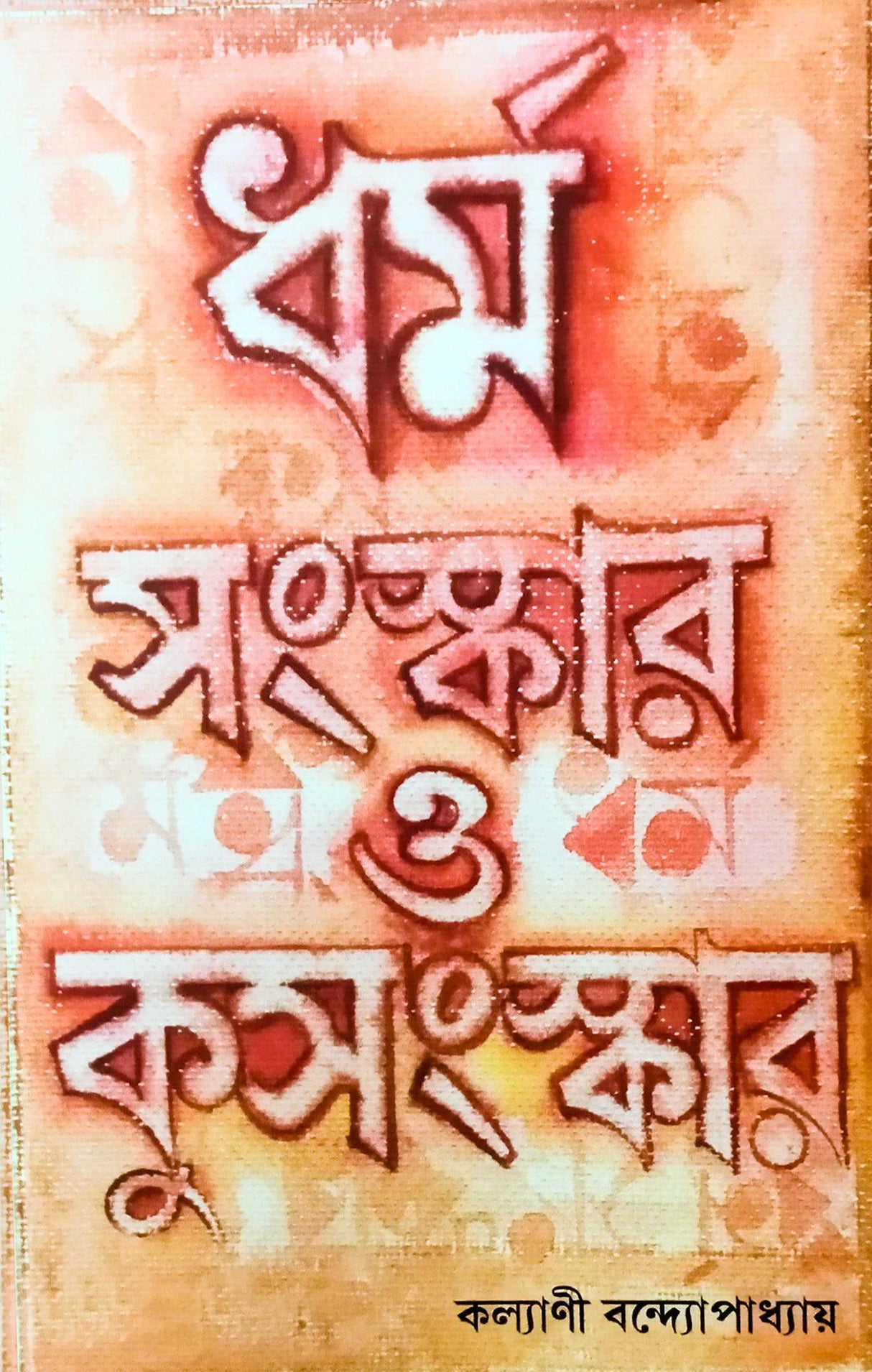Dharmo, Sanskar o Kusanskar
Dharmo, Sanskar o Kusanskar is backordered and will ship as soon as it is back in stock.
Couldn't load pickup availability
Genuine Products Guarantee
Genuine Products Guarantee
We guarantee 100% genuine products, and if proven otherwise, we will compensate you with 10 times the product's cost.
Delivery and Shipping
Delivery and Shipping
Products are generally ready for dispatch within 1 day and typically reach you in 3 to 5 days.
-
Author: Kalyani Bandyopadhyay
-
Category: Essays
-
Publisher: National Book Agency Private Limited
-
Language: Bengali
-
First Publication Year: 2004
-
Publication Year: 2024
-
Edition: 7th Edition
-
Binding: Paperback
-
Number of Pages: 156
-
ISBN: 978-93-92593-99-4
About the Book:
Dharmo, Sanskar o Kusanskar critically examines the concepts of religion, culture, and superstition. The author, Kalyani Bandyopadhyay, argues against the existence of the soul, the afterlife, the concept of heaven and hell, and the idea of reincarnation. She presents these concepts as mere products of imagination, without any scientific or practical basis.
Content Overview:
-
The Existence of Soul: The book discusses the theory of the existence of the soul and its immortality, debunking it as a fictional concept without scientific grounding.
-
Karma and Afterlife: The author challenges the idea that actions in this life lead to rewards or punishments in an afterlife, highlighting that such notions are unscientific and unfounded.
-
Religious Rituals: The book critiques major religious rituals such as yajnas (sacrificial rites), shraddha (ancestral rites), pilgrimage, and fasting, questioning their significance and pointing out their contradictions with scientific reasoning.
-
Social Inequality: One of the main arguments in the book is that the concepts of reincarnation and heaven and hell perpetuate social inequality by justifying economic and social disparities. Furthermore, these beliefs are shown to be used to exploit marginalized sections of society, particularly women.
-
Women’s Position in Society: The book also addresses how religious doctrines, with their dual portrayal of women as both divine and subjugated, contribute to the overall dehumanization and oppression of women in society.
-
Astrology and Superstition: The belief in astrology and the supernatural is also discussed, with the author asserting that such practices have no scientific merit.
Significance:
The book serves as a thought-provoking critique of traditional religious beliefs and practices, urging readers to question the validity of such beliefs and consider more rational and scientific perspectives. It highlights the detrimental effects of superstition, particularly in reinforcing social inequalities, and encourages a shift toward a more enlightened and rational approach to life and society.
This book is an important read for anyone interested in understanding the social implications of religious doctrines and superstitions, particularly in the context of Indian society.





